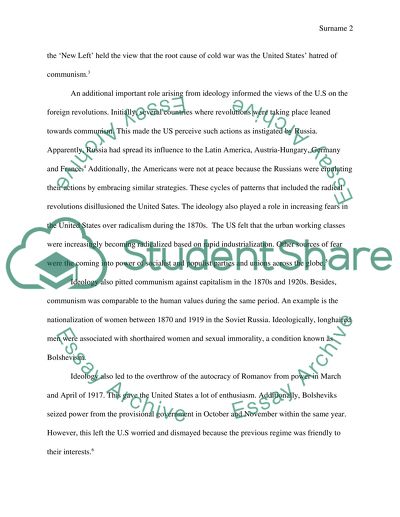Cite this document
(“Discuss the role of ideology in American-Russian relations between Essay - 1”, n.d.)
Discuss the role of ideology in American-Russian relations between Essay - 1. Retrieved from https://studentshare.org/history/1603736-discuss-the-role-of-ideology-in-american-russian-relations-between-1881-and-1920
Discuss the role of ideology in American-Russian relations between Essay - 1. Retrieved from https://studentshare.org/history/1603736-discuss-the-role-of-ideology-in-american-russian-relations-between-1881-and-1920
(Discuss the Role of Ideology in American-Russian Relations Between Essay - 1)
Discuss the Role of Ideology in American-Russian Relations Between Essay - 1. https://studentshare.org/history/1603736-discuss-the-role-of-ideology-in-american-russian-relations-between-1881-and-1920.
Discuss the Role of Ideology in American-Russian Relations Between Essay - 1. https://studentshare.org/history/1603736-discuss-the-role-of-ideology-in-american-russian-relations-between-1881-and-1920.
“Discuss the Role of Ideology in American-Russian Relations Between Essay - 1”, n.d. https://studentshare.org/history/1603736-discuss-the-role-of-ideology-in-american-russian-relations-between-1881-and-1920.


